1905 movie network feature Director Diao Yinan, wearing the title of Berlin Golden Bear, parachuted into the 72nd Cannes International Film Competition.
In recent years, there have been fewer and fewer new Chinese faces in this flashy May. Therefore, when Diao Yinan took Hu Ge, Gui Lunmei, Wan Qian and Liao Fan on the red carpet at the Cannes Film Palace, he was indeed noticed and expected by the Chinese media.
More importantly, the director who has not produced any new works in the past five years and has chosen to disappear during the most rapidly developing period of the Chinese film market is also looking forward to getting out of some kind of predicament.
This is obviously a question with a preset nature. It’s just our guess: for creators, the action of "getting out" is a kind of coherence. The premise of this coherence is to first enter a certain predicament, active or passive.
Xiao Dianjun interviewed Diao Yinan face-to-face, three days after the film premiered at Cannes.
We first assume that as a reader, you know that his last work was not only a film that won the Berlin Golden Bear Award and Best Actor Award at the same time, but also maintained the domestic box office record of winning Chinese films at overseas film festivals.
But after "Fireworks by Day" won the award, Diao Yinan rejected most of the interviews.
But unlike Cannes, all films come here for one purpose: a concentrated exposure.
After the film premiered on the 18th, Diao Yinan’s itinerary was dominated by official events and media interviews in the following days. He answered similar questions about why he made the film and why he chose Hu Ge.
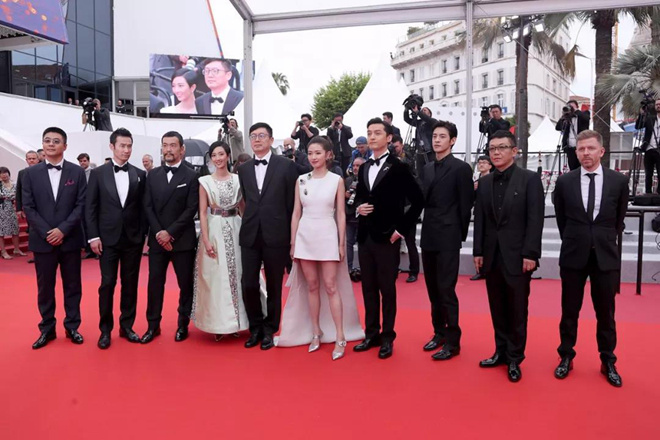
On the third day of this kind of wheel interview, Diao Yinan was exhausted. The original 40-minute interview was reduced to 20 minutes. The first thing he said after meeting was, can I not ask some questions?
At that time, he had just finished an interview with a media and walked out of the rest room. The interview space was a top floor covered by glass. The sunlight was concentrated on the interviewees, and there was no excitement brought by the spotlight of the stage. Only sultry, burning and exhausted.
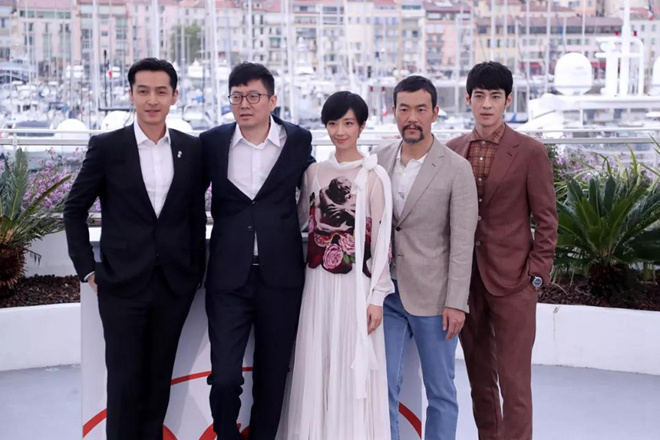
We asked him if this story of escape had anything to do with his desire to escape from the immense fame that "Fireworks by Day" had brought.
Diao Yinan seemed to accept our presupposition. But instead of giving us a completely positive answer, he said: "It’s also possible."
After "Fireworks in the Day", he also experienced a lot of vanity fairs, parties, grand ceremonies, and meeting people from all walks of life. Sometimes it felt good, but most of the time he wanted to avoid these scenes. Diao Yinan said that he still likes to be alone, and it is more comfortable to be alone.
"This is also the success of’Fireworks by Day ‘, but it also forms a dilemma for me, and this dilemma is that you have to go out." For Diao Yinan, the best way to get out of the dilemma is to work.
In his opinion, he had to work like a craftsman to complete the next script.
On Diao Yinan’s way to "get out of the predicament", there were many companions. Li Li was one of them.
Five years ago, he asked Diao Yinan if he could make a film that was more typed and better integrated with business and art.
A few months later, Diao Yinan showed him a piece of news about a fugitive who was offered a reward by the police and wanted to leave the reward to his family. Li Li felt that this was a story suitable for Diao Yinan.
He was also touched by another story: In the 1980s, in Xi’an, where Diao Yinan lived, a well-known gangster escaped from prison shortly before his execution. The police in the city searched for him and found nothing. Two years later, he was arrested again and told the truth. It turned out that after escaping from prison, he ran into the zoo, hid in the elephant house, ate and slept with the elephants for half a month, and watched the tourists outside the elephant house every day, as if he had become a beast.
Diao Yinan said that he couldn’t wait to use the story.
So he went into a creative retreat. The workflow is simple: wake up in the morning and have a bite to eat and then start working. After lunch is another writing period. Sometimes go for a walk in between and come back to continue writing. Not necessarily in the evening, but I also write a little.
Looking back, Diao Yinan felt that the whole creative process of the script was also very anxious. He is a person who thinks very carefully about every scene. The script was only written in one draft, but he did a lot of sub-scenes and imagined different developments.
All the process of writing a script depends on luck. If you are lucky, you will write smoothly. If you are not lucky, there will be various situations.
Diao Yinan compared writing to going to an appointment, just as he had already thought of the name of the play before he started writing it: "The Wild Goose Lake".
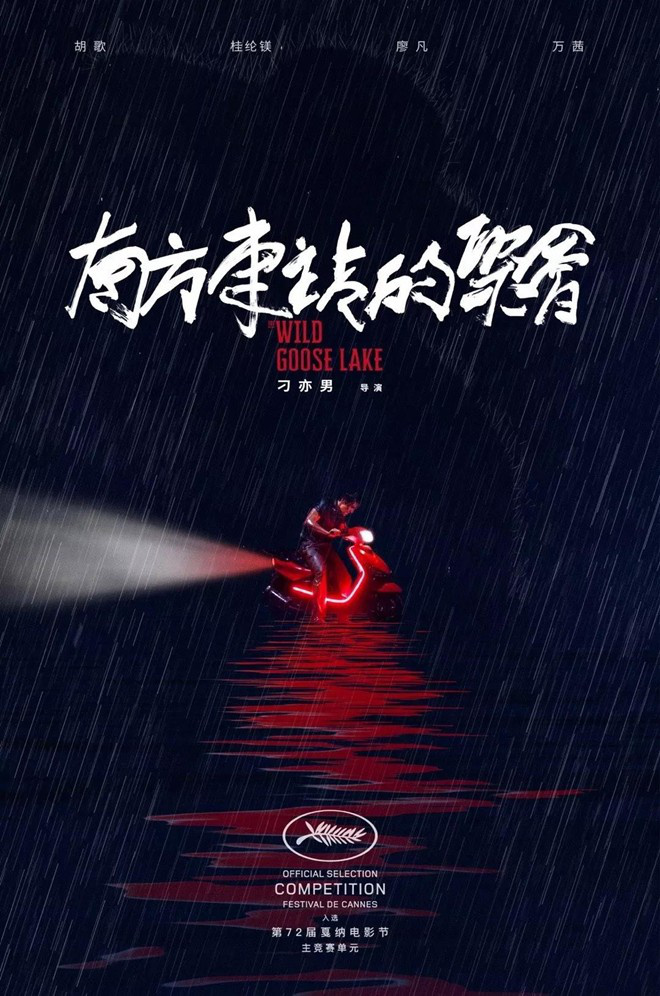
As a screenwriter-turned-director, Diao Yinan feels that when he creates, the picture and the story are two-way thinking at the same time. His scripts clearly write some scenes and atmospheres, but at the same time add literary expression.
In his opinion, the process of writing a screenplay is a game of thinking, a succession of ordinary stories, coupled with the spiritual appeal of the film.
"How these things hide underneath your story to form an undercurrent, these are some very complex mind games. But in the end you have to transform it into emotion," Diao Yinan said.
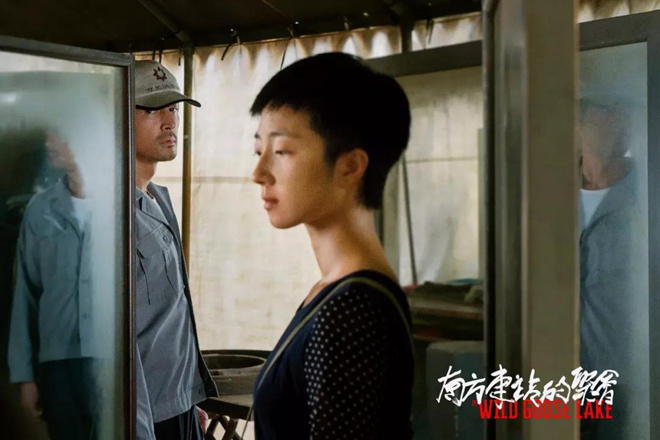
This mind game has been going on for two years. He showed the written script to Li Li. Li Li felt that the cost and difficulty of filming "The Wild Goose Lake" would exceed "Fireworks in the Day".
This hugely successful film actually gave Diao Yinan confidence. It allowed him to find that with such a film in his hands, he could find better partners for future projects.
"The most important thing is that’Fireworks by Day ‘let me know that there is nothing wrong with you shooting genre films like this. Before, basically everyone regarded genre films as commercial films. There are strict routines for fighting and killing. Now I know very well that you can use it as an art to direct."
However, the process of "Fireworks in the Day" is still the production process of an independent art film. On the way out of the dilemma, Diao Yinan actually entered a new dilemma.
"The Wild Goose Lake" presents Diao Yinan with a great challenge compared to "Fireworks in the Day". 85% of the plot is night scenes. This means that the working hours are only 7 to 8 hours per day. The distance from the residence to the location is also almost 1 hour per day, and the shooting time is compressed even more.
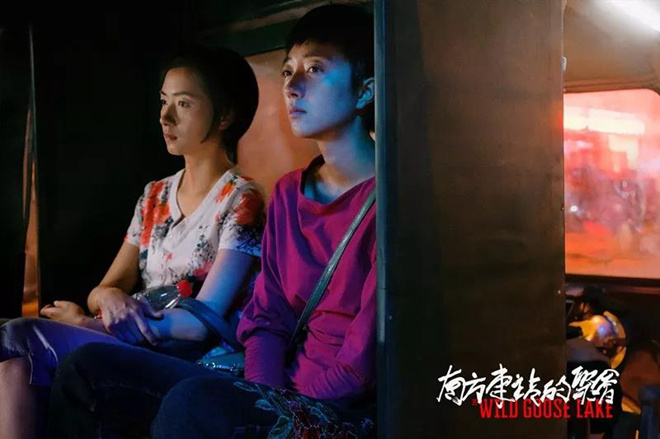
"The Wild Goose Lake" is a full-scale integration with industrial production, said Shen Yan, another producer: "During this process, it is conceivable that the director himself faced a lot of pressure, and to some extent it was a painful transformation of himself. For creators like Diao Yinan, the insistence on quality is always the first priority, so all production plans and arrangements must also be based on this unshakable point."
2,500 group performances, more than 80 non-repeating scenes, and a 5-month shooting cycle. These demands also make the film’s cost pressure not to be underestimated. It is also for this reason that the film needs to use stars to ensure the radiation of the audience and the influence of the film in the future. After Shen Yan proposed to choose Hu Ge, Diao Yinan and Hu Ge met and hit it off.
Like Diao Yinan’s attempt to emerge from the huge reputation of "Fireworks by Day", Hu Ge also hopes to have a transformation in his acting career. The two "fugitives" go to the party together and actively enter a certain dilemma together.
Diao Yinan thought Hu Ge’s face was reminiscent of the beasts of the night: "They all seem to be in the jungle on the edge of a city, lurking or raiding at night, or evading hunters." He gave the face a lot of close-ups, but often did not tell Hu Ge the scene he used to shoot him.
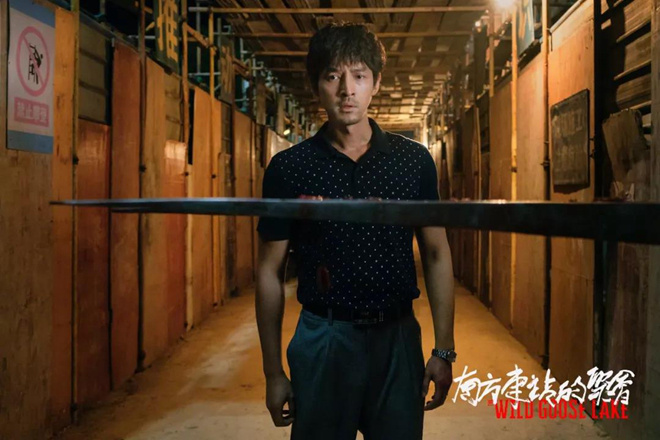
This was Diao Yinan’s habit of "torturing" actors. Because when he told them, there would be hints in his heart, and the performance would be tightened rather than relaxed. He also used some difficult words to tell actors about the play.
Gui Lunmei recalled that when Diao Yinan asked her to have another one, she gave the instruction to "be more black."
But Diao Yinan felt that the actor could understand himself. This was his reaction according to his speaking habits. If the actor didn’t understand, he believed that he would let himself explain. If he didn’t need an explanation, then he understood. His reaction to the actor was still based on what the actor gave.
Hu Ge’s feelings about this were obvious. He recalled Diao Yinan’s demands on him, and was surprised that a director would make demands on his breathing ups and downs and blink frequency. In a close-up, Diao Yinan made it clear that Hu Ge should not blink twice.
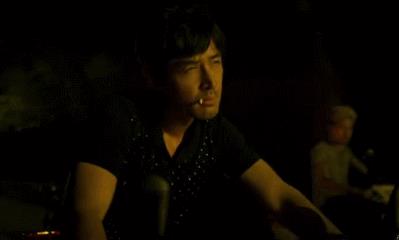
Diao Yinan’s request brought a lot of anxiety to Hu Ge from the small screen to the big screen, forming an invisible dilemma. But Diao Yinan himself resonated deeply with this dilemma. When talking about the success of getting out of "Fireworks in the Day", he compared himself to Hu Ge’s role:
"Hu Ge also had his ultimate mission, which was to fulfill the value of his life in the end, but he finally completed it. Many of us may not be able to truly fulfill the value of life in the end, and people themselves know that they are going to die, and only how they die. This is different from animals, so humans are also animals with a body and a tragic nature. Hu Ge also knew how he died, but he gritted his teeth and passed through each pass, and finally walked towards his own sacrifice, but in fact he obtained a life."
In the movie, the dilemma he sets for the protagonist is a strange space.
Speaking at a press conference in Cannes, he described the space as an inner heterotopia. Stepping into the edge of China’s reality and into these dark depths, Diao Yinan felt that the bright shadows at night, the lights, the steam, the shadows, the streets, and the silence all brought a sense of romance or destiny.
The characters of Hu Ge and Gui Lunmei are both gray people on the edge.
But Diao Yinan feels that the darker the person, the more light he can see. He tries to talk about some chivalrous concepts in this film. In his opinion, traditional ethics and morality are the more valuable qualities of this era: "Today’s society is developing very fast, and everyone has slowly forgotten these values of tradition, so I think it is particularly necessary to remind everyone that these things are very important."
It seems that not everyone has received this signal.
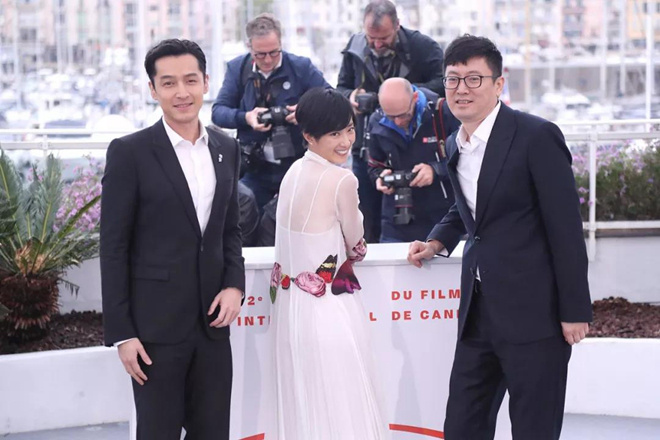
After the Cannes Film Festival ended, "The Wild Goose Lake" did not win a prize.
Diao Yinan, who once said that he liked to keep himself in a state of not being recognized, said this time: "You have to continue to climb up, the mountain is still there. And I think there are still many people who do not recognize me, and some people say that our movies are not good. I regard these opinions as wealth."
At the end of the movie, Diao Yinan felt that the ending he gave was warm: "The foundation of Hu Ge’s actions also has a warm tone. In the end, the two women completed their redemption and walked on the street, as if they had won victory."
I don’t know if it was because he was in a difficult situation and caught the ray of light.